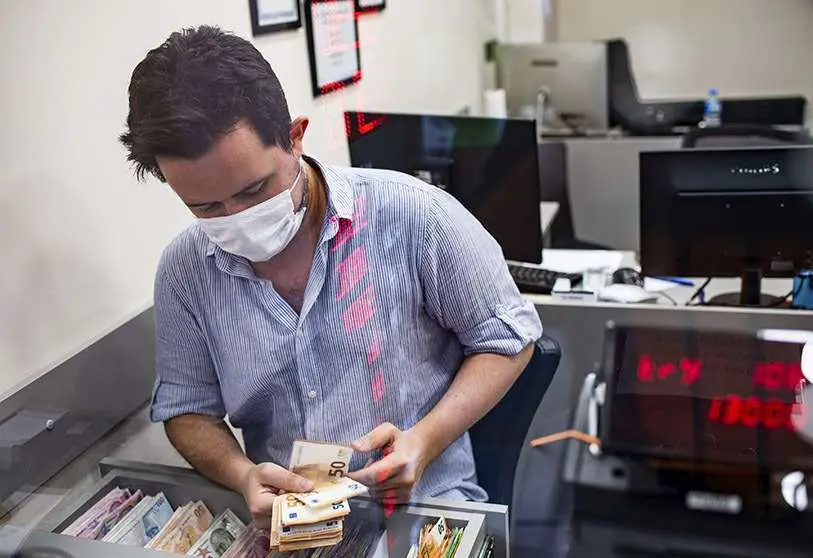The Hawala, the enemy of Operation Wamor: the trust system

In 2019, the National Police launched the so-called 'Operation Wamor', one of the largest schemes against jihadist financing carried out in Spain. At that time, as a result of investigations by the Police Information Department, ten people were arrested in Madrid, Valencia and Toledo, who were involved in sending money to Iraq and Syria. Of these, nine were Spanish or Spanish nationals and one was Syrian.
This cell, with its epicentre in the capital, was dedicated to financing the return of foreign 'fighters' who had fought in the aforementioned conflict zones during the peak years of Daesh.
But how could such money fluctuations escape the authorities? The answer lies in the methodology used: Hawala. This money transfer technique, so widespread in Muslim culture, consists of trust1, yes, trust: a subject who wants to send money to an individual located in another country contacts a hawaladar (the service provider), who will be in charge of transferring the monetary amount to the provider contracted by the receiving subject, avoiding banking institutions at all times and regardless of the origin, legal or not, of the money. "The mediators are in charge of delivering the money without leaving a trace. Trust is fundamental in this process. If someone is caught for illicit activities, they will not reveal the name of the client". As a result of this trust and security, terrorist organisations such as Al-Qaeda and Daesh have been financed from all over the world by circumventing state authorities. A profitable system, in short, due to its low cost, with the mediator receiving around 20 euros for every 1,000 euros transferred2.
One of the most common ways of making contact is through call shops, which very often also have low-cost international money transfer systems. In Spain alone, there are approximately 200-300 hawaladares, mostly located in Catalonia, with an annual turnover of 300 million euros3. It is worth noting that not all of this amount is destined for terrorism, but for the maintenance of their foreign families.
The epicentre of Operation Wamor is Fares Kutayni and his family, Syrians who arrived in Spain in the 1980s after the first purges of the Hafez al-Asad regime. He developed his business of buying and selling heavy vehicles and real estate services between Madrid and Valencia until he became a Spanish citizen. Like many other terrorists or Muslims linked to jihadism, he carried out the 'Taqiyya', a practice that consists of 'passing oneself off as an infidel' so as not to arouse suspicion
Suspicions were aroused in December 2017 when the investigation services discovered that his son, Human, had returned to Spain after serving a sentence in Syria for collaborating in an Al-Qaeda attack. As a result, they began to investigate the family's high economic level, revealing frequent money transfers to their country of origin, specifically to the Al-Qaeda militia, Hal'y Tahir al-Sam, of the al-Nusra Front, whose leader happened to be Fares' brother, Manaf Kutayni.
Working in cash to avoid arousing suspicion, they managed to expand their Al-Qaeda links far beyond Syria, reaching affiliates in Sudan, Yemen, Somalia and Libya. Through the legal cover of their company, they managed to send 'human couriers'4 to the area, via routes 'bought' from various militias. Once the 'foreign fighters' were in Spain, they were provided with accommodation in the Corredor del Henares area of Madrid5.
Today, four years after the start of this anti-terrorist operation, other sources of jihadist financing have come to light. The first of the three accused, Ayman Adlbi, president of the Islamic Commission in Spain, accused of financing terrorism, has been released pending trial. It is necessary to highlight the conflictive ties that the CIE maintains with the Islamist group of the Muslim Brotherhood6 in Egypt, which is considered terrorist in many countries.
On the other hand, the treasurer of the Union of Islamic Communities of Spain (UCIDE), an organisation located in the Islamic Centre Abu Bakr Mosque in Madrid, has been remanded in custody without bail on charges of membership of a terrorist organisation and financing terrorism.
The money transfers were made under alleged donations to an NGO7 for orphaned children in Syria, Al-Bashaer Humanitarian Organisation8, linked to the jihadist organisation Yeish al-Islam, linked to Al-Qaeda. These funds were intended for the training of mujahideen.
As stated by the National Police, the accusations are not directed against the CIE, but rather against individuals, including the former president of the institution, Riay Tatary, who made these donations during the course of his tenure until his death last May9.
After testifying, they were released, accused of collaboration with a terrorist organisation, membership of a criminal organisation, jihadist financing, money laundering, document forgery, tax fraud and promoting illegal immigration10.
- OROYFINANZAS.COM. (2015) What is the Hawala money transfer and remittance system? GOLD AND FINANCE.
- The Information. (21 March 2021). Islamic Commission chairman arrested in anti-terrorist operation. La Información.
- R.Rivera. (2014). The 'hawala', which moves 300 million in Spain, a way of financing terrorism. La Información.
- Europa press. (24 March 2021). Police arrest the president of the Islamic Commission of Spain in an anti-terrorist operation. europa press.
- Muñoz, P. (1 July 2019). The biggest jihadist financing scheme operated like a mafia. ABC.
- OIET. (2021). The president of the Islamic Commission of Spain is arrested for financing terrorism and released with charges. OIET.
- Europa press. (24 March 2021). Police arrest the president of the Islamic Commission of Spain in an anti-terrorist operation. europa press.
- Europa Press. (25 March 2021). Prison for the treasurer of the Union of Islamic Communities of Spain for financing terrorism through an NGO. El Mundo.
- Dolz, P. O. (25 March 2021). Police believe the president of the Islamic Commission of Spain sent money to Al Qaeda militias through an NGO. El País.
- 20 minutos. (24 March 2021). Arrested the head of Islam in Spain: links with terrorism and its financing are being investigated. 20 minutos.
